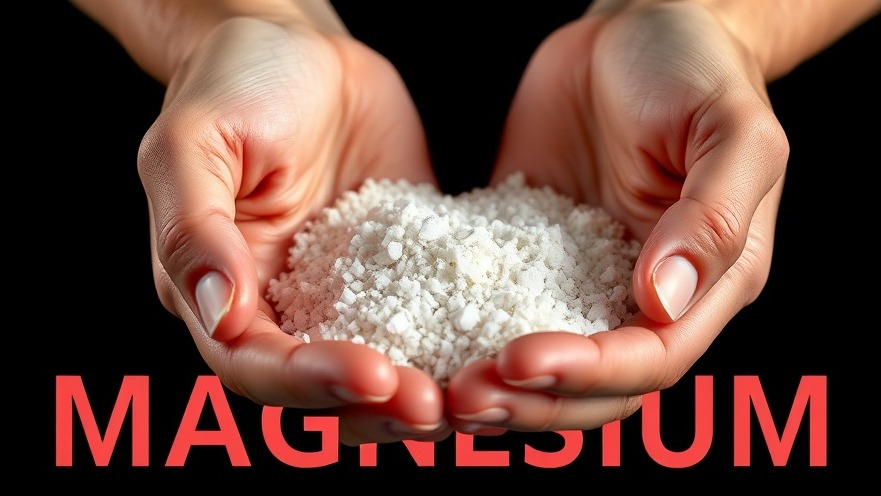
The Missing Mineral Essential for Seniors’ Muscle Health
If standing up from a chair is becoming a monumental task, you're not alone. For many seniors, muscle decline is not solely due to age; it can signify a critical mineral deficiency. Research reveals that magnesium is the overlooked mineral that over 60% of older adults lack. Studies show that restoring magnesium levels can work wonders in muscle health. Over just 12 weeks, including magnesium in daily routines has been linked to older adults improving their strength, balance, and overall sense of wellbeing.
In 'Forget Protein! THIS Mineral Rebuilds Muscle Fast After 60', the discussion dives into the crucial role of magnesium for muscle recovery – let’s explore how this mineral is essential for seniors.
Magnesium: The Master Key to Energy
When people think of muscle strength, they often immediately associate it with protein. However, the reality is that energy is key to muscle performance and recovery. This energy comes from ATP, the vital molecule responsible for muscle contractions. Magnesium plays an essential role as it facilitates the production of ATP. Without adequate magnesium, muscle performance diminishes, making everyday activities feel much more draining, thereby impacting independence and quality of life.
The Cortisol Conundrum: How Stress Impacts Muscle Loss
Additionally, chronic stress is a silent predator that many overlook, undermining muscle integrity. Cortisol, as the body's primary stress hormone, can deplete muscle tissue when levels are persistently elevated. Magnesium can help counteract high cortisol levels. A study highlighted that seniors who supplemented with magnesium witnessed a significant reduction in cortisol while improving their sleep quality. For seniors juggling care for family members or facing multiple daily stresses, magnesium could be a transformative element to regain control of their physical strength.
Combatting Inflammation for Better Mobility
Inflammation is another factor contributing to muscle degradation as we age. Elevated inflammatory markers are common in older adults, leading to increased muscle soreness and fatigue. Research demonstrates that magnesium can protect muscle tissue from the harmful effects of inflammation, making it a defender against age-related muscle loss. By making simple dietary changes, such as incorporating magnesium-rich foods like spinach, nuts, and seeds, seniors can start building a stronger foundation for their mobility.
Ensuring Absorption: The Right Form of Magnesium Matters
Even with magnesium-rich diets, many seniors face challenges in absorbing this essential mineral due to natural age-related changes in the digestive system. This is where choosing the right type of magnesium supplementation is critical. Magnesium glycinate offers superior absorption compared to other forms, allowing seniors to effectively boost their magnesium levels and improve muscle recovery and strength.
Empowering Seniors: Practical Tips for Healthy Aging
Understanding the role of magnesium in muscle health is just the first step for maintaining independence. Seniors should consider the following tips for integrating magnesium into their lifestyles: start by gradually incorporating magnesium supplements, focus on magnesium-rich foods like dark leafy greens, and consult with a healthcare professional to determine the best dosage and form suited to individual needs.
Conclusion: Take Charge of Your Muscle Health
The journey to better muscle health and functionality does not end here. Incorporating magnesium can reverse muscle decline, restore strength, and allow seniors to live safely and independently. If you want to experience the positive effects of magnesium for yourself, consider discussing supplementation options with your healthcare provider. Healthy aging tips aren’t just about diet and exercise; they also encompass understanding and addressing nutrient deficiencies. Take action to reclaim your strength and vitality today.
 Add Element
Add Element  Add Row
Add Row 




Write A Comment